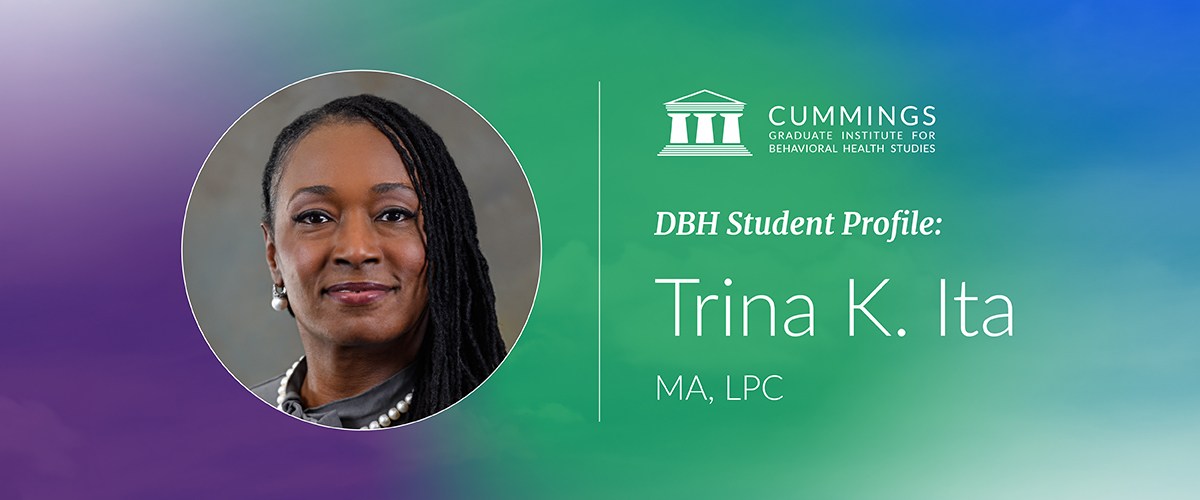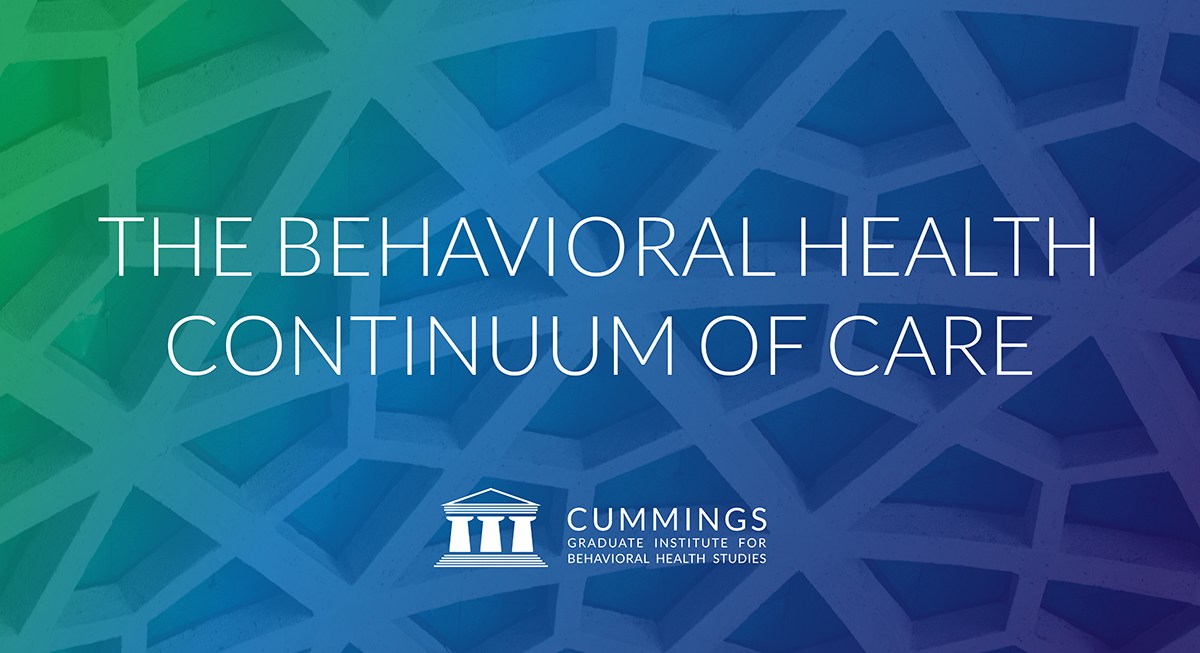 A Commitment to Care: Trina K. Ita’s Visionary Approach to Behavioral Health Leadership
A Commitment to Care: Trina K. Ita’s Visionary Approach to Behavioral Health Leadership
July 10, 2024
Trina K. Ita is a passionate public servant and seasoned thought leader in the field of behavioral health, currently serving as the Deputy Executive Commissioner of Behavioral Health Services for the Texas Health and Human Services Commission (HHSC). With a career spanning over three decades, she has held numerous leadership roles across both private and public sectors, including private practice and child welfare. Trina holds a Bachelor’s degree in psychology from Tuskegee University and a Master’s degree in Counselor Education from Kean University. Now, as a Doctor of Behavioral Health (DBH) student at Cummings Graduate Institute for Behavioral Health Studies, she’s further enhancing her expertise and impact in the field. In this interview, she shares insights on how the DBH program has shaped her approach to addressing behavioral health challenges, a defining experience in her DBH journey, her motivations, and advice for fellow DBH students.
How has the Doctor of Behavioral Health program enhanced your approach to addressing behavioral health challenges and making a difference in the field?
I have worked in behavioral health for the entirety of my professional career starting with college internships up to my current role as Deputy Executive Commissioner of Behavioral Health for the Texas Health and Human Services Commission. While I have years of experience in the field, the DBH program at Cummings has framed my perspective as leveraging therapy as a first line of intervention. As a public servant, much of the work I do is usually in the aftermath of crises or when the system is being forced to respond to a service gap. However, the DBH program takes a much more proactive and integrative approach to health. This perspective/approach has the potential to positively shape policy in Texas in my role as a public servant charged with addressing the safety net needs of the most vulnerable constituents in Texas.
What are your primary professional and academic interests within the realm of behavioral health, and how do these align with your career goals?
My primary professional and academic interests are focused on child welfare and the impact of behavioral health outcomes for youth who come into the state’s custody both from a prevention and intervention perspective. My interest is one that assumes addressing the needs of youth appropriately, prevents or limits interaction and involvement with the adult public health system or other more traumatic systems, such as criminal justice.
I am equally interested in how policy shapes outcomes and how to best leverage policy decisions for macro level outcomes in behavioral health.
Reflecting on your DBH journey, can you share a significant moment that has shaped your perspective on integrated care?
Reading “Refocused Psychotherapy as the First Line Intervention” was defining for me in understanding the history of integrated care. Additionally, the context for the evolution of managed care and how that has shaped so much of care provision in this country was striking. It shifted my thinking from behavioral health care as something that should be addressed when a crisis arises to services and supports that should be contemplated and implemented as a whole health model of care. The physical health of individuals is inclusive of their behavioral health and well-being and the two should not be contemplated as mutually exclusive and separate from one another. To do so, is not treating the whole person and fully addressing their needs. I would also offer that the strength in this model is the collaboration between practitioners. Far too often practitioners are siloed in their work with patients, which seemingly impairs continuity of care and health outcomes. Having a shared approach for patient treatment improves the trajectory of the individual being served.
What drives and motivates you in your pursuit of advancing behavioral health, especially in the context of integrated care, and how do you stay inspired?
What drives and motivates me in my pursuit of advancing behavioral health are my values. I just believe in paying it forward and that everyday should be done on purpose, in purpose. This is why I am a public servant and choose a profession of service. I want to leave the world better than I found it. Behavioral health and provision of integrated care, as I noted in another response, is a model that is strengthened by the collaboration of practitioners. So knowing that the approach is outcomes driven is very motivating to me.
Lastly, while I am relatively new to the DBH program, I have been impressed with the intentionality of the professors in the classroom and the administrative staff in supporting the students. I have had some significant personal challenges since starting the program, but because of the supportive culture of the program I have not felt like I needed or wanted to stop or take a break to catch my breath. That inspires me to continue in the program.
If you could offer advice to your fellow DBH students, what would it be?
Enjoy the process and soak up all you can learn not just from the professors but from your classmates. I would also encourage fellow DBHer’s to figure out how to connect outside of class as a means of supporting one another through the program. We all have such busy lives and sometimes getting through can be a struggle. Do not do it alone if that can be helped.
Trina’s extensive experience and dedication to the field of behavioral health, combined with the insights gained from her Doctor of Behavioral Health program journey, reflect a profound commitment to making a meaningful impact on the lives of others. Her proactive and comprehensive approach to care, along with her focus on policy-driven outcomes, underscores her impactful work in Texas. As she continues to advance in her career, Trina remains driven by her values of service and collaboration, aiming to leave a lasting positive impact on populations she serves. Her journey demonstrates that with dedication, continuous learning, and purpose, it is possible to transform the landscape of behavioral health and improve the lives of countless individuals.
What Drives Trina’s Commitment to Behavioral Health?
Check Out Trina K. Ita on the Disruptors at Work Podcast
 Disruptors at Work: an Integrated Care Podcast, Season 3, Episode 7: The Behavioral Health Continuum of Care with Trina K. Ita, MA, LPC.
Disruptors at Work: an Integrated Care Podcast, Season 3, Episode 7: The Behavioral Health Continuum of Care with Trina K. Ita, MA, LPC.





























